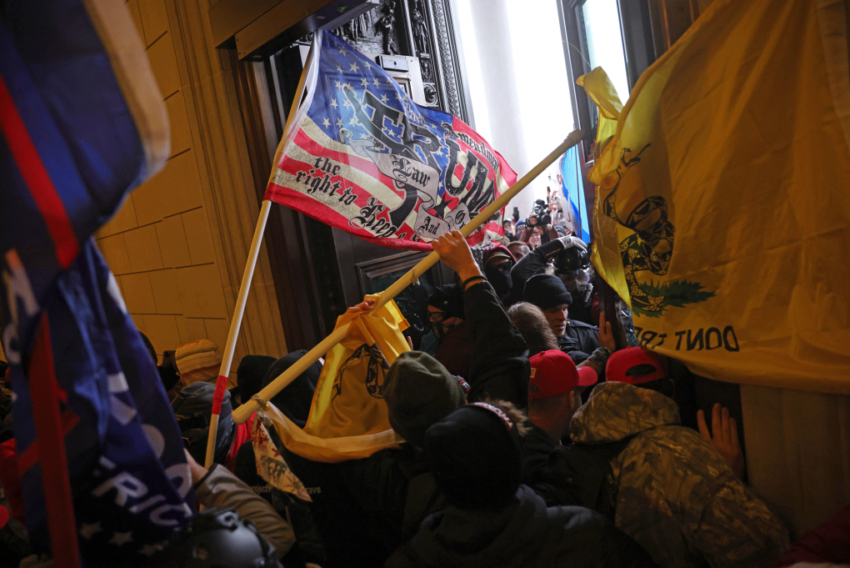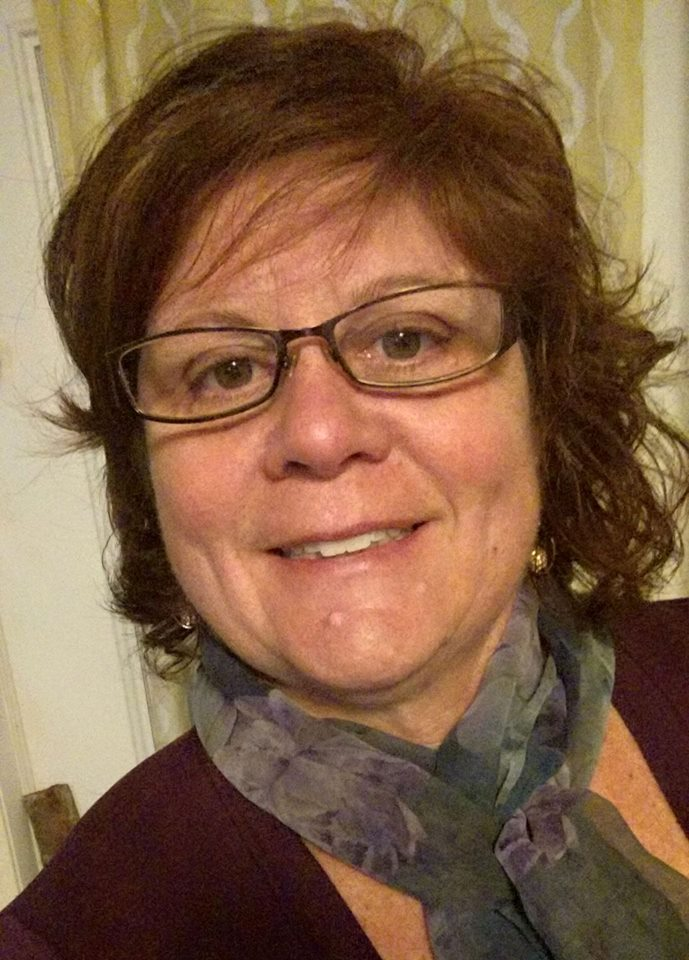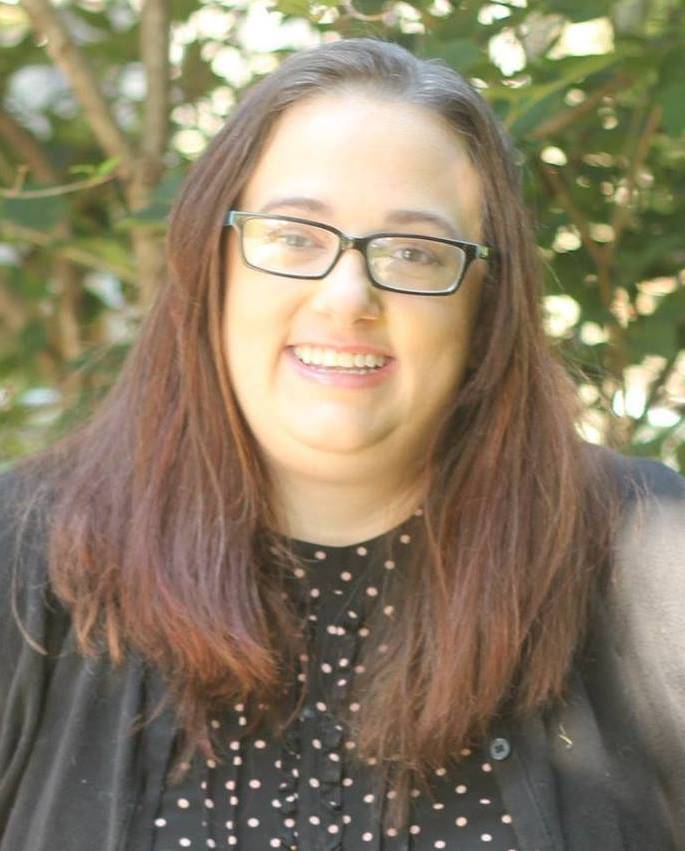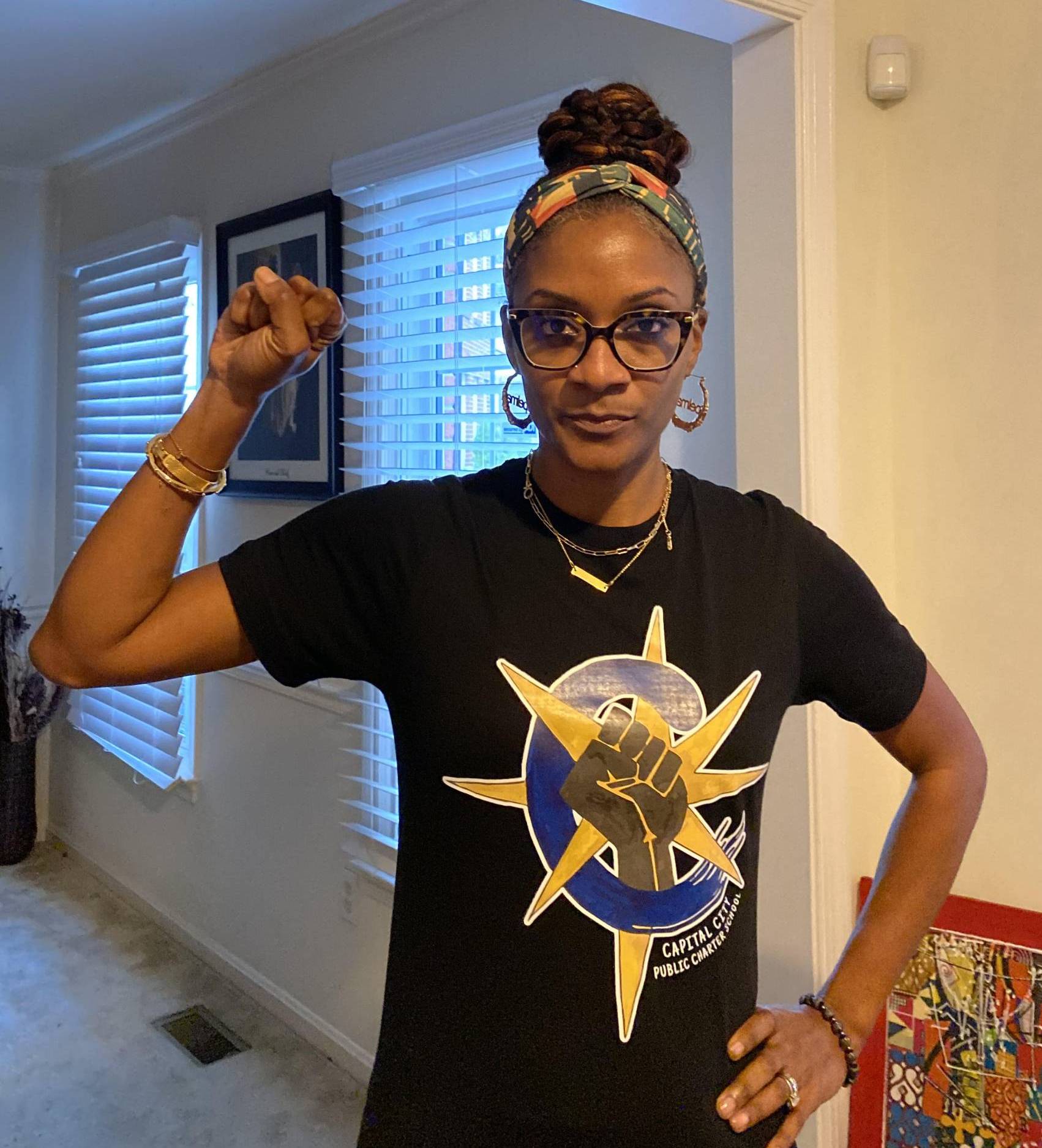
Cox can rattle off from reminiscence practically a dozen of those tearful mornings, beginning with the September 11 assaults throughout her first week of scholar educating. Graduate college hadn’t ready her for that, she stated, however it had left her with the impression that she wasn’t speculated to cry in entrance of scholars.
Associated: A U.S. history teacher scrambles to explain unprecedented attacks and desecration of democracy
“This 20-year distinction is such an eye-opening piece for me,” Cox stated. Again then, she was nervous about the truth that she had cried in entrance of her college students and had “proven them my vulnerability,” she stated. In 2021, she stated she was “crying with confidence as a result of I knew that that represented my ardour.”
Sept. 12, 2001

September 11 was Caroline Patrie’s first day educating. Building had pushed again the brand new college 12 months at her Vermont highschool. The intercom and telephones weren’t arrange but, so a instructor got here to Patrie’s room to inform her everybody was gathering within the library. Collectively, they watched the second tower fall. Then they heard the scream of jets taking off from a close-by Nationwide Guard armory.
“In that very immediate that day it grew to become actually crystal clear to me what public schooling actually is about,” she stated. “It is about educating human beings, and it’s not science or English or social research or math … It’s about educating human beings the best way to turn into good individuals.”
The subsequent day, Sept. 12, Patrie began her class by being sincere and speaking about her personal shock. From then on, Patrie, a science instructor, began troublesome days by asking her college students how they felt — an method advisable by the schooling nonprofit Dealing with Historical past and Ourselves. A information printed by the group last week suggests academics, “focus first on emotional processing, addressing the ‘coronary heart’ earlier than the ‘head.’ ”
Dec. 15, 2012
Marie Hydukovich was pregnant together with her second baby on Dec. 14, 2012, the day that 20 youngsters and 6 adults had been killed at Sandy Hook Elementary. She came upon by an e mail, then seemed on the center college college students in her classroom in Saint Paul, Minnesota, and calmly moved to lock the door.

The subsequent morning, her college students needed to speak about what had occurred on the Connecticut elementary; as a category they learn an article on CNN Student News. Then they moved on.
“Youngsters simply want time to speak in the event that they wish to, however additionally they have to not be pressured to speak,” Hydukovich stated. “We at all times fear a lot about what would we are saying to children about what occurred, we don’t at all times fear about the place can we give children house to simply not.”
She locked her classroom door daily for the remainder of the college 12 months.
April 20, 2015
The day after Freddie Grey, a 25-year-old Black man, died of a extreme spinal twine damage whereas in police custody in Baltimore, math instructor Justin Aion was instructed by his administration to not deal with what had occurred. a room of scholars of coloration, Aion felt the directive was flawed. There was no related order after Sandy Hook, he stated.
“Youngsters aren’t dumb,” he stated. “Youngsters know what’s occurring on the earth … It dismisses them and it dismisses their feelings.”
Aion, who now works for a fledgling environmental constitution college run by Pittsburgh Public Colleges, didn’t convey up Grey, however he gave his college students room to speak once they introduced him up. After that he began usually encouraging conversations about politics and social injustice into his math class. Then, when a serious nationwide occasion affected his college students, it wasn’t as jarring to open a dialogue.
“All educating is political. What we select to show, how we select to show, all of these are political selections,” Aion stated. “And you can not educate children who’re traumatized … Ignoring that as a way to look at content material requirements is extremely quick sighted.”
Associated: Confused and angry, young teachers seek guidance on discussing current events with students
March 14, 2020
After Breonna Taylor was fatally shot by police whereas asleep in her Louisville house on March 13 2020, Cox, the Washington D.C. principal, despatched a employees e mail with the topic line, “A letter for Black ladies.”

In response to the capturing, the college gave Black employees members a psychological well being day, “to take care of the post-traumatic stress that was coming from the continued murders of Black individuals by the hands of police,” Cox stated. In the meantime, white employees members attended anti-racist workshops, planning the best way to deal with the state of affairs and take motion to eradicate racism in a predominantly Black and Hispanic center college. Cox oversaw all of it from the visitor room in her house whereas college remained digital as a result of coronavirus.
“Attempting to course of by this trauma behind a Zoom display has been overwhelming,” she stated.
Jan. 7, 2021
On Jan. 7, in Georgia, Marian Dingle’s fourth graders first learn an article concerning the state’s two senate candidates who received their run-off elections the day earlier than, turning the U.S. Senate blue. Then they learn one concerning the assault on the Capitol. They mentioned 4 key phrases: protest, riot, coup and rebel.
On Jan. 8, they talked about what led as much as the rebel. And so they’ll preserve speaking about it. Dingle stated it’s her duty to establish racism for her college students, to cease them from internalizing the disgrace that comes with it.
“For individuals of coloration, particularly for Black individuals, there is no such thing as a ‘day after.’ It’s daily. It’s simply Tuesday,” Dingle stated.
Performed proper, these conversations may help stop a future “day after,” stated Darcy Richie, senior director of program and affect for Generation Citizen, a civics schooling group that helps college students getting concerned in native points. The scope of those conversations might be small, she stated, specializing in how nationwide points play out in college students’ day by day lives. And the aim might be easy: serving to college students really feel assured of their information of how authorities works and empowering them to be civically engaged.
“The best way the world is working proper now … shouldn’t be okay,” Richie stated. “And we simply must acknowledge a lot of the change that’s essential falls on the shoulders of academics. However I imagine within the energy of academics, I imagine academics can change the world.”
Source link
















